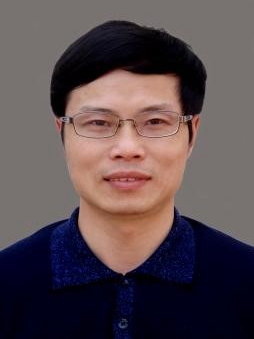
Dr. Tongquan Zhou is a professor of linguistics and applied linguistics at the School of Foreign Languages, Southeast University, China. His major academic interests are neurolinguistics, psycholinguistics, and cognitive linguistics, with a focus on experiment-based syntactic research and interdisciplinary research (e.g., music and language, language and artificial intelligence). Over 60 publications have been authored in influential periodicals, both nationally and internationally, such as Applied Linguistics, Contemporary Linguistics, Brain and Language, Language and Cognition, Linguistic Sciences, Modern Foreign Languages, and System. To date, approximately 10 significant academic projects have been chaired, including three National Social Science Projects funded by the Chinese government and two Humanities and Social Sciences Projects funded by China’s Ministry of Education. In addition, he serves as a reviewer for several journals, including Journal of Psycholinguistics Research, Humanities and Social Sciences Communications, PlosOne, Lingua, and System.
Email address: zhoutongquan@126.com
Wechat: ztq2014china
Education
PhD degree of Linguistics and Applied Linguistics, Central China Normal University, Wuhan,
China (September 2001-June 2004)
MA degree of English Language and Literature, Shandong University, Jianan, China (September 1992-June 1995)
College diploma of English Language and Literature, Hubei Institute for Nationalities (currently renamed Hubei Minzu University), Enshi, China (September 1983-June 1986)
Work Experience
English Teacher at School of Foreign Languages, Southeast University, Nanjing, China (September 2021-present)
English Teacher at School of Translation Studies, Qufu Normal University, Rizhao, China (September 2016-August 2021)
English Teacher at School of Foreign Language and Literature, Central China Normal University, Wuhan, China (July 2004-August 2016)
Post-doc researcher at State Key Laboratory of Cognitive Neuroscience and Learning, Beijing Normal University, Beijing, China (July 2006-January 2008)
Visiting Scholar at Aphasia and Linguistics Laboratory, Northwestern University, Evanston, USA (February 2012-February 2013)
College student counselor at Department of Foreign Languages, Hubei Institute for Nationalities, Enshi, China (July 1986-August 1992)
Academic Articles (2021 onward, with *signaling Dr. Zhou as the corresponding author)
1.Brain regions involved in underlying syntactic processing of Mandarin Chinese intransitive verbs: An fMRI study. Brain Sciences, 2021, 983(11),1 (Q4-SCI,4/7)
2.The social hierarchical restrictions of Chinese verbs rapidly guide online thematic role assignment in comprehension,Brain and Language, 2022, 232, 105161. (Q1-SSCI & SCI, Top journal in linguistics, 2/4).
3.N400 indexing the motion concept shared by music and words, Frontiers in Psychology, 2022,13.888226. (Q1-SSCI, 1/4)
4.*A review of the ESL/EFL learners’ gains from online peer feedback on English writing,Frontiers in Psychology,2022,13. 1035803 (Q1-SSC, 5/6)
5.Different Acquisition of Chinese pseudo-attributive structures by Chinese natives and Chinese-as-a-second-language learners, Frontiers in Ascian-Pacific Language and Culture Studies, 2022,1(2),67-75.(CiNii, 1/4)
6.*Chinese EFL learners different from English natives in cataphora resolution: Evidence from eye-tracking studies, Frontiers in Psychology, 2023,14. 1126673 doi:10.3389/fpsyg.2.23.1126673 (Q1-SSCI, 5/6)
7.*Chinese JSL/JFL learners’ online perception of Japanese verb conjugations: Evidence from a behavioral study, Heliyon, 2023, 9(5), e15820. (Q2-SCI, 3/5)
8.*On the Novel Chinese Modifier-Head Construction Shejian Shang de X: An Analysis of Meaning Construction,Chinese Journal of Applied Linguistics, 2023, 46(3), 438-458. https://doi. org/10.1515/CJAL-2023-0307 (ESCI, 3/4)
9.Chinese intermediate English learners outdid ChatGPT in deep cohesion: Evidence from English narrative writing. System, 2023, 118, 103141. https://doi.org/10.1016/ j.system.2023.103141 (Q1-SSCI, Top journal in linguistics, 1/5)
10.*The left posterior sMMN: a marker of syntactic processing compensation in agrammatic aphasia,Aphasiology, DOI: 10.1080/02687038.2024. 2318828(SSCI二区)
11.*Predicting pragmatic functions of Chinese echo questions using prosody: evidence from acoustic analysis and data modeling. Frontiers in Psychology, 2024, 15:1322482. DOI 10.3389/fpsyg.2024.1322482. (SSCI一区) (3/4)
12.*词类典型性对现代汉语“V双+N双”结构加工的影响/Effects of lexical category typicality on processing “disyllabic verb+disyllabic Noun” Structures in Modern Chinese (Chininese Journal),《现代外语》/Mordern Foreign Languages, 2024, 47(6), 766-777. (CSSCI, 3/3)
13.The immediate integration of semantic selectional restrictions of Chinese social hierarchical verbs with extralinguistic social hierarchical information in comprehension. Language and Cognition, 2024, 1-15. DOI:10.1017/langcog.2024.11. (Q1-SSCI,and A&HCI, first co-authorship, 2/5)
14.*Is ChatGPT like a nine-year-old child in theory of mind? Evidence from Chinese writing. Education and Information Technologies, 2024, https://doi.org/10.1007/s10639-024-13046-7.
15.Complementary Advantages Exhibited by ChatGPT and Human Readers in Text Reading Inference. Current Psychology (accepted for publication). (Q2-SSCI, 1/4).
Published Monographs and Books
1.English Blessings in Western Culture (Book of popular science, co-editor). Wuhan: Wuhan University Press, 2001.
2.Pragmatics of English Language (Textbook, co-authored). Wuhan: Central China Normal University Press, 2008.
3.Linguistic Theories and Language Disorders (Monograph). Beijing: China Social Sciences Press, June 2010.
4.Chinese Verbs’ Valency: Theoretical Hypothesis and Cognitive Processing Research (Monograph). Beijing: Science Press, 2024.
Major Chaired Research Projects
1.A project funded by the National Social Science Foundation of China (2006), “Research on Valency of Chinese Verbs from a Neuropsychological Perspective,” No. 06BYY020.
2.A project funded by the Social Science Foundation of Hubei Province (2009), Research on the Processing of Chinese Relative Clauses, No. 208407.
3.A project funded by China’s Ministry of Education (2014), Research on the Processing of English and Chinese Relative Clauses, No.14YJAZH115.
4.A sub-project of the Major project Research on Neuropsychological Mechanisms of Chinese Non-literal Language Cognition funded by the National Social Science Foundation of China (2014), No. 14ZDB155, Research on Neuropsychological Mechanisms of Chinese Non-literal Structures.
5.A key project funded by the National Social Science Foundation of China (2016), Research on Cognitive Processing of Modern Chinese Special Centralization Structure, No. 16AYY014.
6.A project funded by China’s Ministry of Education (2023), Research on the Cognitive Neural Mechanism of Atypical Event Structures in Modern Chinese,” No. 23YJA740061.
Courses Taught (Overview)
1.Undergraduate level: English Writng; Introduction to Linguistics; Overview of British and American Studies; Comprehensive English; Audio-Visual English Speaking
2.Master’s level: Introduction to Formal Syntax; Cognitive Linguistics; Academic English Writing; Syntax
3.Doctoral level: Interdisciplinary Language Studies; Modern Chinese Syntactic Theory; Cognitive Linguistics



